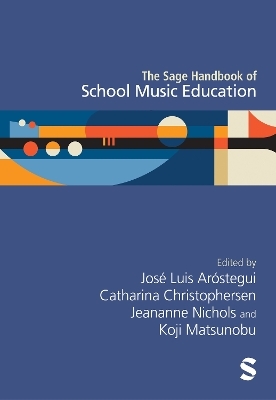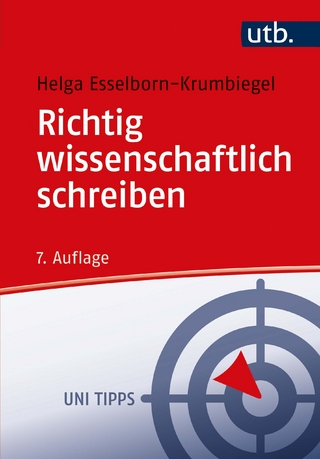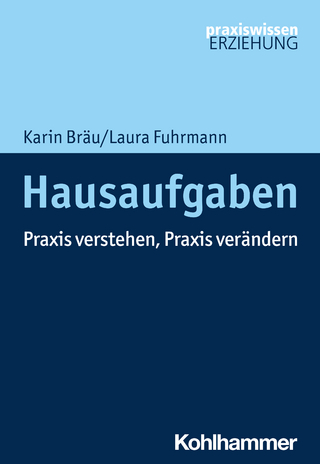
The Sage Handbook of School Music Education
SAGE Publications Ltd (Verlag)
978-1-5297-9047-4 (ISBN)
The Sage Handbook of School Music Education stands as an essential guide for navigating the evolving educational landscape in the wake of the 2008 financial crisis and the transformative impact of the COVID-19 pandemic. The handbook addresses philosophical foundations, social justice challenges, the envisioning of a transformative curriculum, and critical issues in music teacher education. Written by a diverse team of leading scholars, this handbook offers a truly global perspective with contributors from Africa, Asia, Australasia, Europe, and North and South America.
The handbook engages with the profound interplay of economic, political, and social forces that shape educational policies. Scholars within this collaborative work delve into what it means to educate in a world undergoing significant changes. This entails an exploration of emerging educational approaches, considerations for societal implications, and the interconnectedness of school music education with broader curricular and global contexts.
As a cohesive resource, The Sage Handbook of School Music Education not only addresses the challenges faced by educators but also envisions the transformative potential of music education in fostering creativity, inclusivity, and adaptability. This handbook serves as a compass for students, practitioners and scholars in the field, and all those passionate about navigating the complexities of redefining music education for a new era.
Part 1: Foundations
Part 2: Struggling for Social Justice Through Music Education
Part 3: Curriculum Development
Part 4: Teacher Education
José Luis Aróstegui is Professor at the Department of Music Education, University of Granada, Spain. He is the coordinator of the research group SEJ-540 of Research in Music Education and PI of some R&D projects sponsored by the European Commission and the Government of Spain, among which: Evaluation of Music Teacher Education Programs in Europe and Latin America (2004-2007); The impact of School Music Education in Spain (2014-2017), Music Teacher Education for the Knowledge Society and Economy (2017-2021) and Transversality, Creativity and Inclusion in School Music Projects (2022-2025), the latter as PI1. He has been a member of the international advisory board of the research project Music Teacher Education for the Future on music teacher education in Norway (2019-2022). He is also a member of the International Advisory Team of the research project "Pilot experience of a musical pedagogy oriented towards human rights education: Proposal of pedagogical guidelines for the initial training of music teachers", in Chile (2023-2026). From these and other researches, he has produced papers published in many indexed journals and publishers, and presented at conferences. José Luis has been editor-in-chief of the Revista Internacional de Educación Musical (2013-2023; from 2020 to 2023 as co-editor). He has been a commissioner member of MISTEC (Music in Schools and Teacher Education Commission), being its president during the biennium 2010-2012. He was also a member of the ISME (International Society for Music Education) Board from 2012 to 2016. Catharina Christophersen is professor of music education at Western Norway University of Applied Sciences. Previously a music teacher in compulsory schools and municipal schools of music and performing art, she is now a teacher educator and researcher. She is chair of the Norwegian Forum for Research in Music Education, and her research is frequently presented in international conferences and published in international journals and volumes. Her research areas include music in schools, music teacher education, and creative partnerships, and she has a particular interest in issues relating to educational change, educational philosophy, research ethics, and social justice. Jeananne Nichols is the Carol Grotnes Belk Distinguished Professor of Music Education at Western Carolina University in Cullowhee, North Carolina, USA where she serves as the music education program coordinator and teaches courses in music curriculum and methods. Drawing upon narrative inquiry and other qualitative research designs, Dr. Nichols’ research highlights the lived experiences of persons whose voices may otherwise be muted in the prevailing discourses of music and music education. Dr. Nichols’ work has been published in the Journal of Research in Music Education, The Bulletin of the Council for Research in Music Education, Research Studies in Music Education, The Music Educator’s Journal, The Mountain Lake Reader, and The International Journal of Education and the Arts. Koji Matsunobu holds two PhDs in music education and secondary/continuing education. Prior to joining the Education University of Hong Kong, he held academic positions at the University of Queensland, Australia, and Kumamoto University, Japan. As a Former Fulbright scholar and member of the Board of Directors for the International Society for Music Education (ISME), he has published extensively on spirituality, creativity, ecology, wellbeing, Japanese music, world music, arts integration, arts-based research, place-based education, and the long-term impact of music education. He invented an award-winning musical instrument called the recohachi (recohachi.com) designed for hybrid music-making and used in educational settings.
Chapter 1: A Rise of Music Education in a New Era - José Luis Aróstegui, Catharina Christophersen, Jeananne Nichols, Koji Matsunobu
Section 1: Foundations
Chapter 2: School Music Education and the Society of Tomorrow: The Necessity of Navigating in Chaos - Geir Johansen
Chapter 3: School Music Education and Utopian Thinking - Alexandra Kertz-Welzel
Chapter 4: School Music Education, Virtuality and Virtualization - Lauri Väkevä
Chapter 5: Sustainable Futures and School Music - Vincent Bates
Chapter 6: Place-Conscious: The Social and Ecological in School Music Education - Daniel J. Shevock
Chapter 7: Reclaiming Spirituality in the Music Classroom During Times of World Crisis - Amira Erlich
Chapter 8: Forced Migration and Identity in School Music - André de Quadros, Ailbhe Kenny
Chapter 9: Getting Stuck in Close-enough Democracy: Working the Ruins of Intercultural School Music Education Towards Post-ethical Utopias - Alexis A. Kallio, Nasim Niknafs
Chapter 10: Moral Economy of Death in Music Education - Nasim Niknafs
Chapter 11: School Music Education and Uncertain Futures - Catharina Christophersen
Section 2: Struggling for Social Justice Through Music Education
Chapter 12: Coming into Presence: The Challenges and Possibilities of Democratic Music Education - Kelly Bylica
Chapter 13: Social Class and Cultural Participation - Petter Dyndahl
Chapter 14:Confronting ‘Divisive Concepts’ Legislation and White Emotionality: Encouraging Discomfort in Music Education - Juliet Hess
Chapter 15: Struggling Against Inequities: Music Education and Human Rights in Times of Capitalocene - Rolando Ángel-Alvarado
Chapter 16: Gender and Sexuality in Music Education Research: A Rationale for a More Expansive Approach to LGBTQ Inclusion in Music Teaching and Learning - Sarah Bartolome, Stephanie Gregoire, Sam Bullington
Chapter 17: Music Education and the UN Convention on the Rights of the Child - Claudia Gluschankof
Chapter 18: Disability as Disruption in Music Education - Jesse Rathgeber, Adam Patrick Bell
Chapter 19: Deconstructing Music Education: Addressing the Local Realities and Challenges in Educational Praxis - Héctor Vázquez-Córdoba
Chapter 20: Community Music and its Political Imperative: Music-making and the Struggle for Social Justice - Nicola McAteer, Rory Wells
Chapter 21: Struggling for Equity through Music: A High School Minority Student’s Programme for the Music College Entrance Exam in Southwest China - Tao Guan, Ning Luo
Chapter 22: To Heal: Notes for Allies of Social Justice in Music Education - Jeananne Nichols
Section 3: Curriculum Development
Chapter 23: A Holistic Approach to Music Education - Carlos Abril
Chapter 24: Music Education in a Changing Political Environment: Reflections on the School Music Curriculum in Hong Kong - Bo Wah Leung
Chapter 25: STEAM Education, Neoliberalism, and Inequality: Making a Creative Workforce for the 21st Century - Jess Mullen
Chapter 26: Deep Listening and Playing in the Intercultural Space: On Soundscapes, Improvisation and Collaborative Creative Processes in Early Childhood and Elementary Music Education - Chee-Hoo Lum & Natalie Alexandra Tse
Chapter 27: Technology in the Service of Educational Purposes in Music Classrooms - Heidi Partti & Mikko Seppänen
Chapter 28: Bridging the Gaps: Enlivening the Curriculum in this Digital Age - Annie Mok
Chapter 29: The Use of Digital Technology in School Music Education: Artificial Intelligence and Emerging Practices - Lee Cheng
Chapter 30: Public Pedagogy in the Elementary Music Classroom: Popular Music as a Tool for Critical Participatory Citizenship - Judy Lewis
Chapter 31: Making their Voice Visible: Considering Students’ Perspectives in Music Curriculum Development and Implementation - Natassa Economidou
Chapter 32: Beyond Measurement: Assessment and Evaluation in Music Education - Martin Fautley
Chapter 33: Directions for School Music Education in a New Era - José Luis Aróstegui
Section 4: Teacher Education
Chapter 34: Beyond ‘Democracy’: Making Space for the Educational and Political in Music Education - Tuulikki Laes, Danielle Treacy, Heidi Westerlund
Chapter 35: Struggling for Social Justice through Music Education Musical Arts Teacher Education in Kenya for a Humane Society - Emily Akuno
Chapter 36: Addressing the Policy Vacuum: Is Grassroot Policy Activism in Music Teacher Education Possible? - Patrick Schmidt
Chapter 37: Facilitating Agency and Equity in Generalist music teacher education in Norway - Kari Holdhus
Chapter 38: Marginalization, Elite Capture, and Universality in Music Teacher Education: From Deference to Construction - Sean Powell
Chapter 39: Revitalizing Music Teacher Education through Culturally Responsive Pedagogy - Lily Chen-Hafteck
Chapter 40: Towards Positive Youth Development and Well-Being in Music Education: Lessons for Music Teacher Education - Beatriz Ilari, Alexander Clements
Chapter 41: Music Teacher Education in Times of Impermanence: The Potential of Technology - Smaragda Chrysostomou
Chapter 42: Preparing for an Uncertain Future: Proposing a Reflective-Practice Pathway Towards Productive and Reflexive Professional Identities - Julie Ballantyne
Chapter 43: Professional Development and Transformative Learning in Changing Times and Shifting Identities - Siew Ling Chua, Suriati Suradi
Chapter 44: Beyond Borders and Beats: Exploring the Ever-Evolving Landscape of Music Teacher Education Across Regions - Koji Matsunobu
| Erscheinungsdatum | 24.09.2024 |
|---|---|
| Verlagsort | London |
| Sprache | englisch |
| Maße | 174 x 246 mm |
| Gewicht | 1310 g |
| Themenwelt | Schulbuch / Wörterbuch |
| Sozialwissenschaften ► Pädagogik | |
| ISBN-10 | 1-5297-9047-6 / 1529790476 |
| ISBN-13 | 978-1-5297-9047-4 / 9781529790474 |
| Zustand | Neuware |
| Haben Sie eine Frage zum Produkt? |
aus dem Bereich


